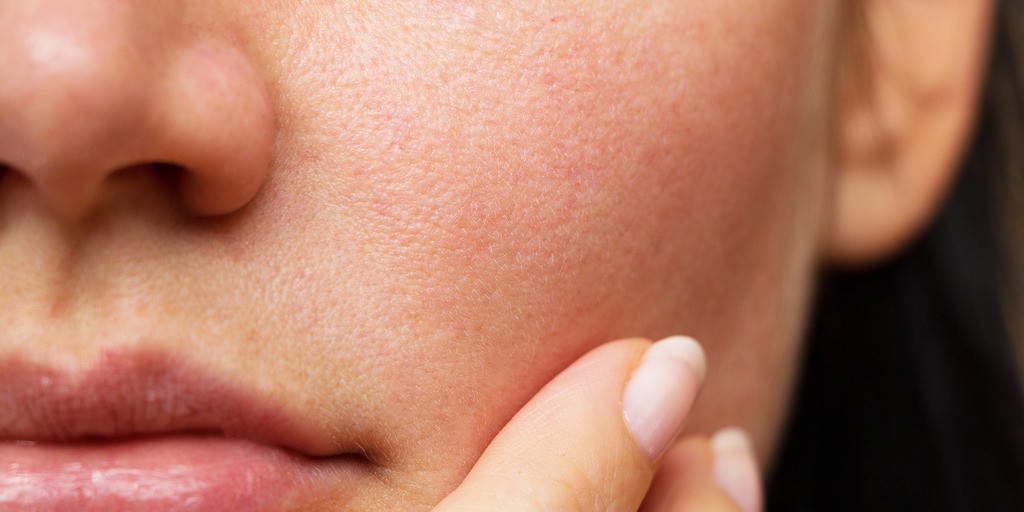Acne is a common skin problem that affects millions of people worldwide. It is characterized by the presence of pimples, blackheads, whiteheads, and other blemishes on the skin. Acne can be caused by several factors, including genetics, hormones, stress, and poor diet. Although there are many over-the-counter and prescription acne treatments available, some people prefer natural remedies for acne prone skin. In this article, we will explore ten natural remedies for acne prone skin.

Tea Tree Oil
Tea tree oil is a natural essential oil that has been used for centuries to treat various skin problems, including acne. It has antibacterial and anti-inflammatory properties that can help reduce the inflammation and redness associated with acne. Tea tree oil can be applied topically to the affected area using a cotton swab. It should be diluted with a carrier oil, such as coconut oil or olive oil, before use to avoid skin irritation.
Aloe Vera
Aloe vera is a succulent plant that has been used for centuries to treat various skin problems, including acne. It has anti-inflammatory and antibacterial properties that can help reduce the inflammation and redness associated with acne. Aloe vera can be applied topically to the affected area using a cotton swab. It can also be used as a face mask by mixing aloe vera gel with honey and applying it to the face for 10-15 minutes before rinsing off with water. Learn how to make aloe vera gel at home.
Apple Cider Vinegar
Apple cider vinegar is a natural remedy that can help balance the pH level of the skin and reduce the growth of acne-causing bacteria. It can be used as a toner by diluting it with water and applying it to the face using a cotton ball. Apple cider vinegar can also be used as a spot treatment by dipping a cotton swab into the vinegar and applying it directly to the affected area. Learn how to make a DIY apple cider vinegar toner.
Honey
Honey is a natural antibacterial agent that can help kill the bacteria that cause acne. It also has anti-inflammatory properties that can help reduce the inflammation and redness associated with acne. Honey can be applied topically to the affected area using a cotton swab. It can also be used as a face mask by mixing honey with cinnamon and applying it to the face for 10-15 minutes before rinsing off with water.
Green Tea
Green tea is a natural antioxidant that can help reduce the inflammation associated with acne. It can also help reduce the production of sebum, the oil that can clog pores and cause acne. Green tea can be applied topically to the affected area using a cotton swab. It can also be used as a face mask by mixing green tea leaves with honey and applying it to the face for 10-15 minutes before rinsing off with water.
Witch Hazel
Witch hazel is a natural astringent that can help reduce the inflammation and redness associated with acne. It can also help reduce the production of sebum, the oil that can clog pores and cause acne. Witch hazel can be applied topically to the affected area using a cotton ball.
Jojoba Oil
Jojoba oil is a natural moisturizer that can help prevent dryness and flakiness associated with acne treatments. It can also help regulate the production of sebum, the oil that can clog pores and cause acne. Jojoba oil can be applied topically to the affected area using a cotton swab.
Turmeric
Turmeric is a natural anti-inflammatory agent that can help reduce the inflammation associated with acne. It also has antibacterial properties that can help kill the bacteria that cause acne. Turmeric can be used as a face mask by mixing turmeric powder with honey and
applying it to the face for 10-15 minutes before rinsing off with water. It is important to note that turmeric can stain clothing and towels, so be sure to use a dark-colored towel and wash your face thoroughly after using the mask.
Zinc
Zinc is a natural mineral that can help reduce the inflammation associated with acne. It also has antimicrobial properties that can help kill the bacteria that cause acne. Zinc can be taken as a supplement or applied topically to the affected area using a cream or lotion.
Omega-3 Fatty Acids
Omega-3 fatty acids are essential fatty acids that can help reduce inflammation throughout the body, including on the skin. They can be found in foods such as fatty fish (like salmon and tuna), nuts, and seeds. Omega-3 supplements can also be taken to ensure an adequate intake of these important fatty acids.
Acne can be a frustrating and sometimes painful skin condition, but there are many natural remedies that can help reduce the inflammation and redness associated with acne-prone skin. From tea tree oil to omega-3 fatty acids, these natural remedies can be used in conjunction with other acne treatments to provide a holistic approach to acne management. It is important to remember that natural remedies may not work for everyone, and it is always a good idea to consult with a dermatologist before starting any new acne treatment regimen. With patience and persistence, finding the right combination of natural remedies and traditional treatments can help improve the appearance and health of acne-prone skin.
